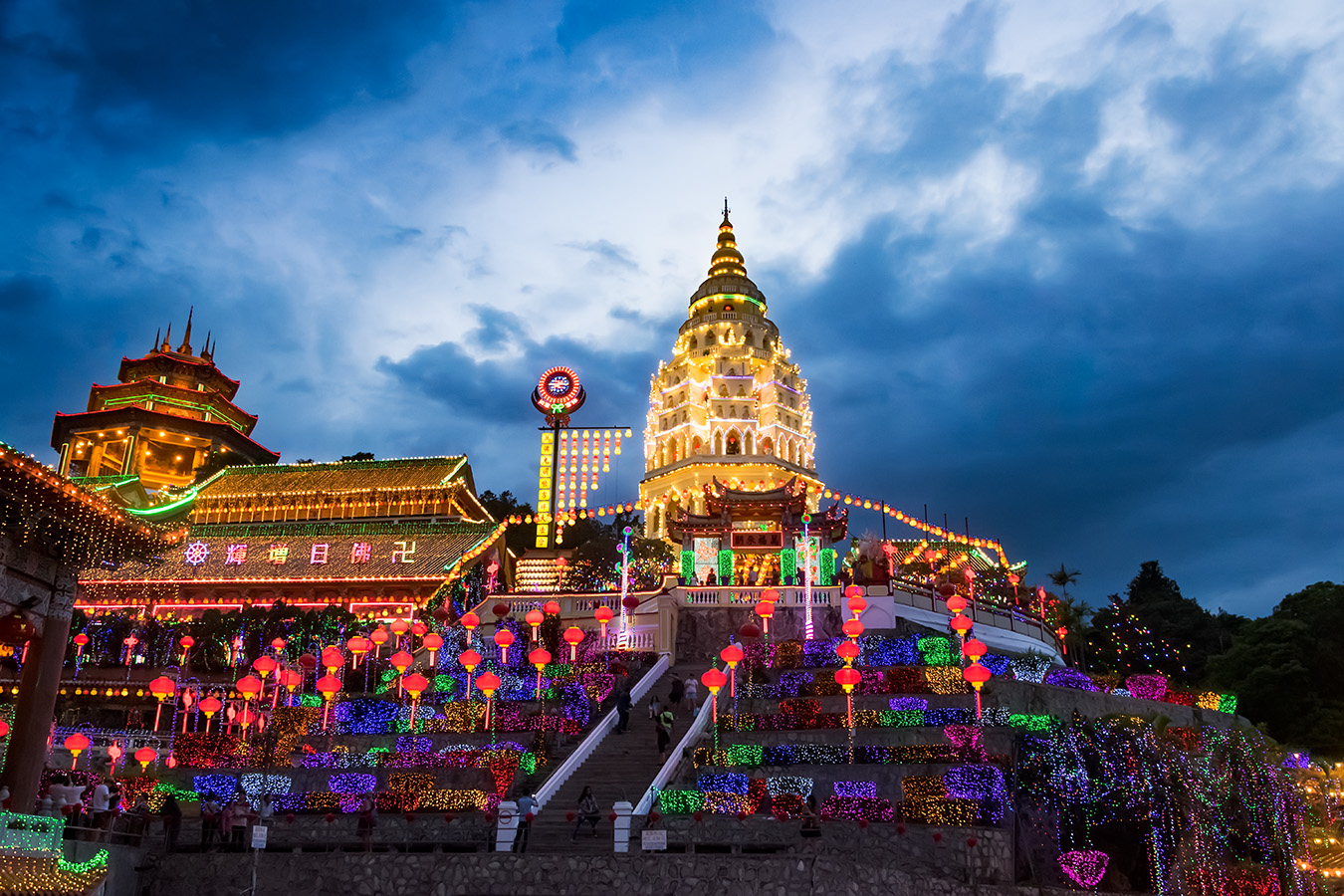"I Paid RM5 To Make A U-Turn?!" Kek Lok Si Slammed For Being Commercialized After Lights Went Off Before Time, While Parking Staff Still Collecting Fees

A Facebook user shared her story about paying RM5 for parking fees, only to make a U-turn at Kek Lok Si when the lights went off before the scheduled operating hours. The incident sparked a heated conversation among netizens, with some accusing the temple of being overly commercialized.
The user narrated her experience of visiting the temple for a light show around 10:45 pm on the 9th day of the Chinese New Year (February 18). Assuming the lights would be on until midnight, they were assured by the parking staff that there was ample space. After paying the parking fees at 10:46 pm, they encountered a queue on their way to the highest point, and shockingly, the lights started turning off at 10:50 pm, as per the poster's dashcam footage. Left perplexed, they eventually turned back to the exit.
**Swipe right to watch the videos:
Expressing dissatisfaction, the poster questioned the parking staff's responsibility to inform visitors about the change in schedule instead of blindly collecting fees.
She highlighted the perilous conditions of the dark and hilly road leading down from Kek Lok Si, emphasizing the need for lights to prevent accidents.
The post was shared to a Facebook group and netizens have raised various concerns.
Many criticized the temple's commercialization, pointing out RM5 parking fees, RM3 entrance fees to the temple, an additional RM3 for visiting the God Of Mercy's statue, and RM3 for the cable car. Some users highlighted a trend of temples becoming commercialized entities.
One commenter criticized the parking staff for allowing more vehicles despite limited parking, trapping paying visitors in queues. The staff taking care of the cable car reportedly suggested that those waiting for the cable car should walk instead if they couldn't wait.
As temples increase fees and fares, some users expressed concerns about the perceived favouritism toward wealthier visitors, drawing parallels to how hospitals treat patients based on financial capabilities. Some sarcastically joked about the situation possibly being a scam or a robbery.
Safety issues regarding walking on the dark hill at night without street lamps were also raised.
In defence of the temple, a few argued that the collected fees should be considered as a form of donations, and they are necessary for property maintenance and bill payments.
One commenter suggested that the lack of street lamps should be the city council's responsibility, not the temple's.
Clarifications were also provided, with one commenter stating that Kek Lok Si experienced an electrical issue causing the lights to go off. Another user mentioned that the lights were turned off at 11 pm but resumed from midnight to 2 am.
What do you think of this? Are temples really commercializing, or are these fees justifiable?












